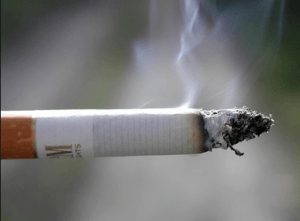Effective tobacco policies could save eight million lives and $1 trillion annually – UN
 Smoking and tobacco use cost world economies more than $1 trillion each year in healthcare and lost productivity, the United Nations (UN) health agency reports, refuting claims that controls on tobacco products adversely impact economies.
Smoking and tobacco use cost world economies more than $1 trillion each year in healthcare and lost productivity, the United Nations (UN) health agency reports, refuting claims that controls on tobacco products adversely impact economies.
The report, published by the World Health Organization (WHO), “shows how lives can be saved and economies can prosper when governments implement cost-effective, proven measures,” Dr. Douglas Bettcher, WHO Director for the Prevention of Noncommunicable Diseases (NCDs) was quoted as saying in the report.
These measures include increasing taxes and prices on tobacco products, according to findings in the economics of tobacco control. Given that there are about 1.1 billion tobacco smokers aged 15 years or older around the world, an excise tax of about $0.80 per pack in each country would raise $140 billion globally.
The authors further noted that such a tax would increase retail prices on cigarettes on average by 42 per cent, leading to a decline in smoking rates by up to 66 million smokers, or the equivalence of nine per cent, the report said.
Without such actions to curb tobacco products, an additional two million people – up to eight million from six millions – are expected die from tobacco and related products by 2030, according to the report. The majority of those deaths would be in low- and middle-income countries.
“The tobacco industry produces and markets products that kill millions of people prematurely, rob households of finances that could have been used for food and education, and impose immense healthcare costs on families, communities and countries,” Dr. Oleg Chestnov, WHO’s Assistant Director-General for NCDs was quoted as saying.
Source: un.org
